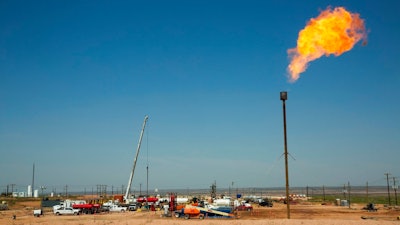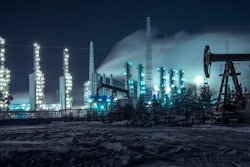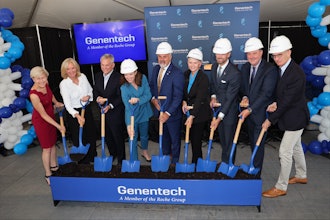
Wayne Smith was hardened to a certain level of chaos here, on land the American public owns. But even he was incredulous as he surveyed an area he leases for grazing, now cleared of grass and cluttered with above-ground pipelines, a drill pad for multiple wells and other oil and gas infrastructure.
"I still pay a grazing lease right there," Smith said in May, pointing to a government map showing there should be no more than 17 acres of development on the site instead of the 125 acres he saw in front of him. "Now, what's my cow going to eat?"
This isn't what's supposed to happen on publicly owned land the federal government oversees. The Bureau of Land Management can lease the same property to more than one party at once, but if New Mexico ranchers request it — as Smith did — the agency has instructed its field offices to contact them before such a build-up occurs. Smith said no one notified him. The BLM declined to comment on the matter.
Violations, from oil spills to haphazard land restoration, are becoming more common in this hotbed of oil and gas activity, according to ranchers and conservation groups. One sign of the area's increasing appeal for drilling: A September federal oil and gas lease sale brought in a record-breaking $972 million.
A local BLM official, Jim Stovall, has admitted his team doesn't have the resources to enforce all the rules on the books, according to people who heard his remarks.
Fixing these problems isn't the Trump administration's priority. Instead, it's working to speed up oil and gas permitting and open tens of thousands of additional acres to drilling here. For years, the industry in New Mexico has had outsize access to local BLM officials — federal employees relying on the private sector for everything from money to expertise. Now, it's getting assistance from Washington.
"We want to make the BLM a better business partner for the oil and gas industry," Michael Nedd, then-acting director of the agency, said last year at the Carlsbad Mayor's Energy Summit.
__
This story is part of a collaboration between the Center for Public Integrity, The Texas Tribune, The Associated Press and Newsy.
__
Conservationists, ranchers and others worry that allowing more drilling without addressing the problems already created by ramped-up production could threaten one of the most biologically diverse deserts in the world and scar the land so it can't be used for other purposes afterward. As the Trump administration calls for "energy dominance," some here fear their way of life will become collateral damage.
This conflict is happening against a backdrop of record U.S. production of oil and gas, juiced by demand from international markets that federal rule changes opened up to American firms earlier in the decade. Much of what's being sent abroad comes from the Permian Basin, a geologic formation in West Texas and southeastern New Mexico that includes about 2 million acres of land and 3 million acres of minerals such as oil and gas managed by the BLM around Carlsbad. In New Mexico, production is occurring ever closer to Carlsbad Caverns National Park, a United Nations World Heritage Site with more than 119 caves and 33,000 acres of desert wilderness, threatening air quality and the habitats of endangered birds.
Industry and government officials say accelerating permitting will bring much-needed jobs and money to the area. New Mexico is heavily dependent on oil and gas revenue, and the permitting process, some say, has been hijacked by anti-development interests.
"Texas was blessed, not just with a larger portion of the basin, but also with no federal lands," Ken McQueen, cabinet secretary of the Energy, Minerals and Natural Resources Department of New Mexico, told members of Congress in June. "In Texas you can have a permit and a rig on location quicker than you can fill out the paperwork to drill a well on federal acreage in New Mexico."
But people are using that land for other purposes, too. The Smiths, for instance, have ranched here for generations. They own property, but leasing public land is a key part of their cattle operation — true of many ranchers. Before Wayne Smith died in October at age 47, he kept calling the BLM for help.
It didn't work.
"We can't stop anything that's happening now," he said about five months before his death from undetermined causes. "We can only survive. And there's a point where survival is not there anymore."
__
ONCE IN A GENERATION
Downtown Carlsbad looks almost like a child's diorama. The sky is huge and bright blue, with clouds as fluffy as cotton balls, and the buildings — few more than three stories high — leave plenty of room to appreciate the natural backdrop.
But a messier reality keeps jutting in, from the sign warning, "US 285 South Subject to Sinkhole 1000 Feet Ahead" — erected because a brine well for oil and gas operations created a cavern underground that could collapse — to the flames of flares burning off excess gas, contributing to air pollution and climate change.
More is coming.
Every 15 to 20 years, the BLM can reconsider how swaths of public land can be used — what parts should be protected and where various business activities should be allowed. The agency's Carlsbad field office is doing that now.
Among the BLM's 33 field offices, it's already one of the five most active for federal onshore oil and gas permitting. Now it is proposing to open nearly 86,000 additional acres to development, including oil and gas.
As justification, the BLM cited a 2017 executive order from President Donald Trump to "remove barriers to economic prosperity and quality of life in rural America."
The BLM said it expects the plan would lead to about 15,600 jobs within 20 years. That's almost 2,500 more jobs than it thinks would be created under the current leasing scheme.
"It is in the hottest oil and gas area of the country," said Kathleen Sgamma, president of the Western Energy Alliance, a trade group. "It's going to garner a lot of interest from industry . and environmental groups, many of which want to shut down oil and gas development."
The Trump administration's changes reflect a broader trend to undo Obama-era environmental protections for public lands, including a rule that aimed to reduce greenhouse gases and toxic air pollution from industry flaring.
Agency officials in both Washington and New Mexico declined to answer specific questions for this article, instead releasing a short statement saying they are "committed to sustainably developing our Nation's energy and natural resources." Activities on federal lands in New Mexico supported more than 78,000 jobs and generated $14.9 billion in the 2017 fiscal year, the BLM wrote.
The BLM is hard-pressed to keep up. Jim Stovall, the district manager overseeing Carlsbad and another field office, acknowledged at a meeting hosted by a think tank and a conservation group in May that the Carlsbad office doesn't have enough money or staff to enforce all the regulations for activity occurring on the land it manages, according to five people in attendance.
Documents the BLM provided to the Center through a public-records request show no penalties levied for nearly 95 percent of oil and gas violations identified by the Carlsbad office over a five-year period ending in April. This assumes the agency is accurately recording its enforcement activities. It wouldn't clarify.
In January the BLM sent a memo to its field offices, eliminating a required 30-day public comment period before land is leased. And in June, the BLM issued a bulletin directing field offices to skip in-depth environmental assessments for oil and gas projects whenever possible — something the industry asked for.
This "calls into question the adequacy of the process and how much they are putting a thumb on the scale in terms of energy dominance," said Brent Keith, senior policy advisor for The Nature Conservancy.
The industry disagrees. The administration is simply directing the BLM to follow the law and bypass duplicative reviews, oil and gas groups said.
"This is a prudent step that would allow BLM to be more effective and timely in processing applications and permits," wrote Robert McEntyre, a spokesman for the New Mexico Oil and Gas Association, which has more than 1,000 members.
__
HELPING HAND
As it struggles to keep up with demands here, the BLM has sought assistance from an outside source that's been happy to oblige: the oil and gas industry. Deep ties between the two predate the Trump administration.
In 2014, during the last boom, the New Mexico Oil and Gas Association donated $800,000 to the BLM's state office in Santa Fe to help plug holes created by Washington budget cuts. The BLM used the money to hire more employees in the state.
The agreement was for only one year. But the trade group's disproportionate access to the bureau continues to this day. The oil and gas association has created "working groups" for its members to discuss bureau policy, like the land use planning process the Carlsbad field office is working on now. BLM officials regularly attend the meetings, according to current and former employees and documents obtained under the Freedom of Information Act.
The BLM would not comment on the matter or say whether these meetings are open to the public. McEntyre, with the oil and gas association, said most of the meetings the trade group holds are open only to its members. In some cases, he said, parts of these events are open to non-members.
A sportsman's group representative who got wind of the meetings asked BLM district manager Stovall last December if he could attend one that was scheduled for January, according to emails released through public-records requests to the environmental group WildEarth Guardians and shared with the Center. Stovall never responded.
Some companies, including Devon Energy and Occidental, have separate, quarterly meetings with staff in Stovall's district. Emails show Stovall has gone to dinner with company officials the night before some of those meetings. The BLM declined to make Stovall available for an interview.
In managing lands, the BLM must sort through conflicting ideas about what, exactly, is in the public interest. Giving one industry lopsided access can lead to decisions that are, or seem to be, skewed, legal experts said.
"If it appears they're not acting impartially, then it undermines public confidence in the process," said Virginia Canter, chief ethics counsel at the Citizens for Responsibility and Ethics in Washington, a government watchdog group based in D.C.
The New Mexico Oil and Gas Association and some current and former BLM officials say there's nothing nefarious about their interactions. Field office staff need to meet frequently with oil and gas companies because they have a significant impact on the land, an office employee told the Center on condition of anonymity because of a ban on speaking to the national media.
Because so much of the state's oil and gas is on federal lands, the industry has "a vested interest in how BLM performs its work, and it only makes sense that producers, as their largest customers, would work collaboratively to safely produce energy in New Mexico," wrote McEntyre, the association's spokesman.
Jesse Juen, who signed the $800,000 donation agreement with industry when he was the BLM New Mexico state office director, said the agency needed the money to beef up enforcement and compliance. The arrangement was carefully vetted, said Juen, now a board member of the Public Lands Foundation, a nonprofit whose members are largely current and former BLM employees.
"I never viewed the effort as catering to industry, but looked at it as an opportunity to help better manage the public lands on all fronts," Juen wrote in an email to the Center.
The irony, said Mark Squillace, a professor at the University of Colorado Law School, is that the government can recover permit-processing costs through fees from applicants. A donation shouldn't be necessary, he said.
"The way this plays out is that these organizations are in the position of appearing to do a favor for the government," said Squillace, a special assistant with the Interior Department's solicitor's office during the Clinton administration. "But it's hard to avoid the conclusion that it's being done in a way that pushes the BLM to support the (oil and gas industry's) agenda."
The New Mexico Oil and Gas Association said it gave the money because the Obama administration "failed to support local BLM offices." The donation followed applicable guidelines, McEntyre wrote.
The Center identified at least two other oil and gas associations that have made similar donations to the BLM. One, the Oklahoma Oil and Gas Association, said in a written statement that the average permit processing time in the Oklahoma field office has dropped significantly since the donation was made, without preferential treatment for members of the trade group or "improper influence on regulators."
__
STRUGGLING TO ADJUST
Carlsbad is best known for its namesake caverns, part of a fossil reef that 265 million years ago formed the coastline of an inland sea. Inside the park's Big Room, among the largest cave chambers in North America, backlit rocks jut out from above and below, eerie and otherworldly. Aboveground is a desert wilderness of weathered rocks covered in yellow grass, dotted with flowering cacti.
But development isn't far off. Flares on the side of the road are less than 10 miles away.
The National Park Service said "excellent air quality is critical" for the area around the caverns, and it's begun using a portable monitor to detect ozone — a type of air pollution that's bad for sensitive plants and people's lungs — as oil and gas activities increase. In 2016, the agency warned in a letter to the BLM that the park was at a tipping point; as drilling moved closer, staffers worried about nitrogen emissions that would harm native plants and wildlife.
Hunters, meanwhile, report seeing less game on public lands than they used to, and the acreage on which they can hunt has shrunk, according to the Theodore Roosevelt Conservation Partnership. And ranchers, even those who have benefited financially from oil and gas operations on their land, say they are getting overrun. Smith started a business to help his fellow ranchers deal with problems, such as companies cutting fences, causing cattle to scatter.
Smith's business partner, J.W. Todd, supports drilling, as many here do. He likes the idea of "energy freedom" the Trump administration is pitching — but not how it's playing out.
He wants to own a ranch. He's getting closer to that goal and now leases one near Carlsbad. This life is his idea of paradise: "I always envisioned myself being a cowboy out in the West, where you can ride for days and just see grass and countryside."
But Todd knows oil and gas production is only expected to grow.
"If the magnitude is what they say it will be," he said, "we won't be able to adjust."






















